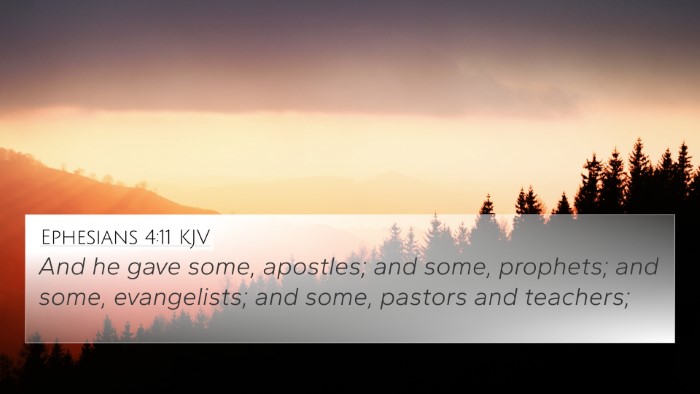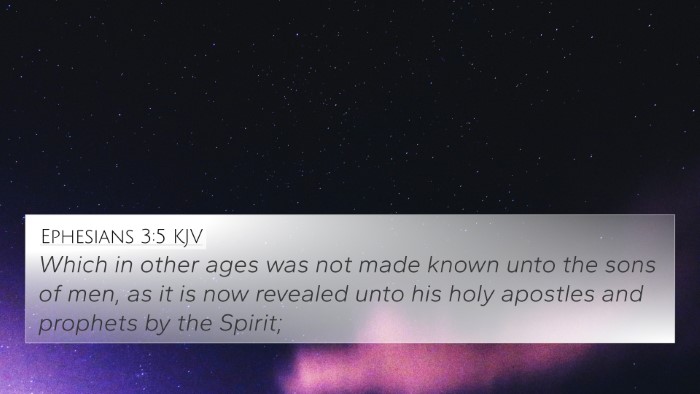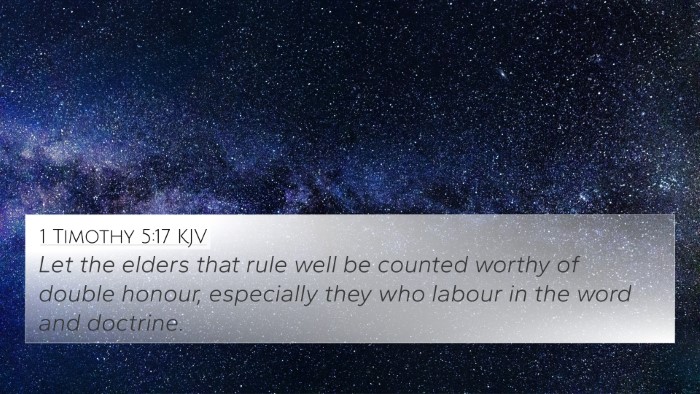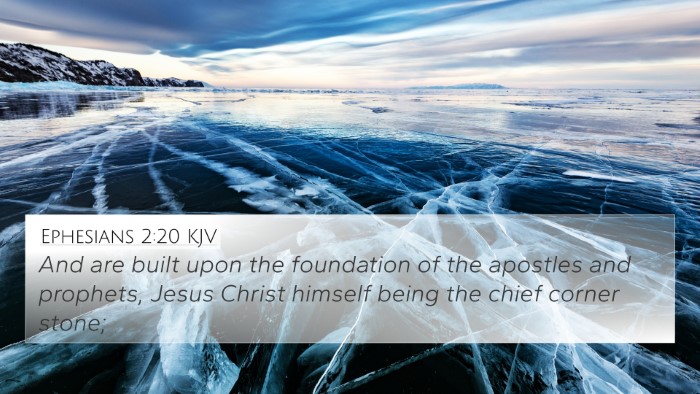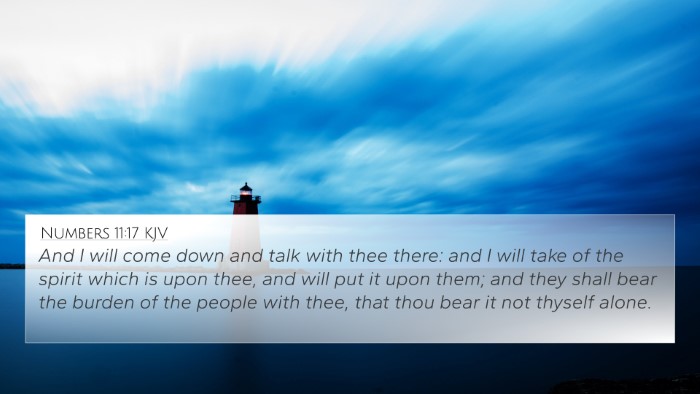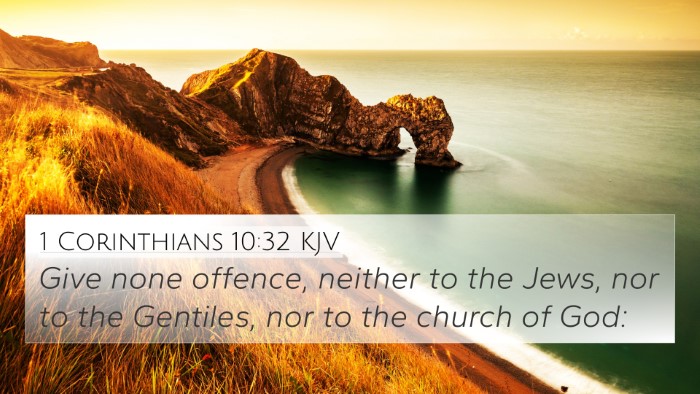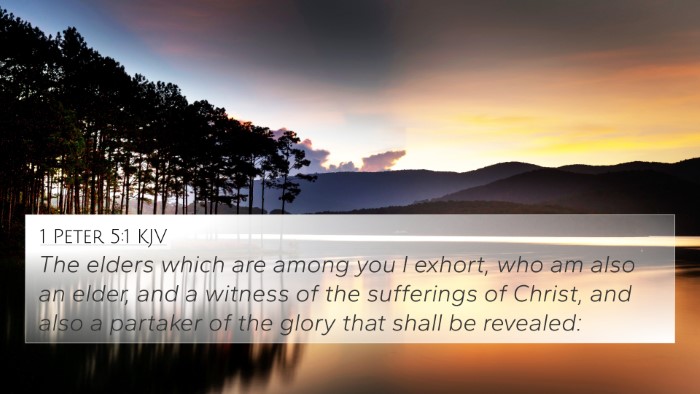Understanding 1 Corinthians 12:28
1 Corinthians 12:28 states, "And God has appointed in the church first apostles, second prophets, third teachers, then workers of miracles, then gifts of healing, helping, administrations, and various kinds of tongues." This verse highlights the diverse roles within the church, showcasing the various gifts and functions believers possess as part of the body of Christ.
Verse Meaning and Interpretation
The Apostle Paul, in this chapter of 1 Corinthians, addresses the significance of spiritual gifts and the structure of the church. This verse particularly emphasizes God's appointed leaders and their corresponding roles.
- Apostles: The foundational leaders of the early church, often regarded as the messengers of Christ.
- Prophets: Those who speak forth God’s message, offering guidance and correction to the church.
- Teachers: Individuals responsible for instructing others in the faith and deepening their understanding of God's word.
Roles and Their Importance
Each role mentioned contributes to the overall function of the church. As explained by Adam Clarke, the inclusion of "workers of miracles" and "gifts of healing" highlights the active demonstration of faith through divine intervention. These gifts serve not only as signs of God’s power but also as means to edify and support the body of believers.
Matthew Henry notes that this hierarchy illustrates God's order in the church, where different gifts serve distinct purposes but collectively contribute to the church's health and growth. Each member plays a vital role, reinforcing the theme that no gift is superior but rather functions in unity for Christ’s body.
Cross-References for Further Study
To fully grasp the implications of 1 Corinthians 12:28, it’s beneficial to explore related scripture. Here are some significant cross-references that illustrate the connections between Bible verses:
- Ephesians 4:11-13: This passage aligns with Corinthians, discussing diverse roles in the church, emphasizing unity in faith and maturity in Christ.
- Romans 12:6-8: Focuses on different gifts given to believers, illustrating how these gifts are to be exercised within the body of Christ.
- Acts 2:17-18: Quoting Joel, it emphasizes God's spirit empowering believers with various gifts, including prophecy.
- 1 Peter 4:10: Encourages believers to use their gifts to serve others as faithful stewards of God’s grace.
- 1 Timothy 3:1-13: Discusses qualifications of church leaders, further defining roles within the church structure.
- Hebrews 13:17: Reminds believers to obey their leaders, pointing towards the authority established within the church.
- Colossians 3:23-24: Encourages doing work heartily as for the Lord, reflecting the attitude with which we serve in our various roles.
Thematic Connections
The thematic connections of 1 Corinthians 12:28 to other passages are vital for understanding the nature of church unity and function. The gifts mentioned are not standalone but interact with each other to form a cohesive body. The concept of unity amid diversity within the church is central to Pauline theology.
Albert Barnes emphasizes that God’s design in appointing these different roles is for the benefit and growth of the church, providing a framework through which believers can operate in harmony. The diverse gifts mirror the multifaceted nature of the church, stressing that while roles may vary, the purpose remains unified: glorifying God and serving one another.
Application in the Church Today
Understanding the roles outlined in 1 Corinthians 12:28 provides practical insights into church structure and individual responsibilities within the body of Christ. With the variety of gifts, members should seek to identify their own spiritual gifts and use them in service to the church community, agreeing with Paul’s exhortation in Ephesians 4:16 about the body of Christ growing and building itself up in love.
Tools for Bible Cross-Referencing
To enhance your study of this scripture and its connections, consider utilizing tools for Bible cross-referencing. Resources such as a Bible concordance or a Bible cross-reference guide can aid in mapping out related verses and deepening your understanding of the Scriptures. Engaging in cross-reference Bible study can illuminate the rich tapestry of themes and teachings across both the Old and New Testaments.
Conclusion
In conclusion, 1 Corinthians 12:28 provides a profound insight into the organizational structure of the church and the necessity of each member's role in the body of Christ. Through the insights of various commentaries and the connections found within scripture, it becomes evident that understanding our divine roles and responsibilities enriches our faith and promotes unity within the church.
As you continue in your study of the Bible, remember that linking Bible scriptures through cross-referencing not only deepens your understanding but also connects the overarching themes of God's word throughout history.



